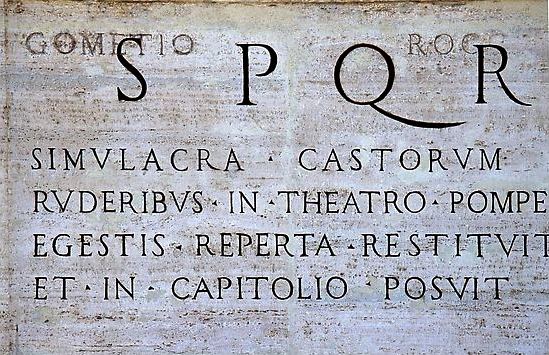Julia McLean explores the realm of language survival, loss of culture and how Latin has survived if only by virtue of being part of other languages such as many of the Romance languages.
‘The most common process leading to language death is one in which a community of speakers of one language becomes bilingual in another language, and gradually shifts allegiance to the second language until they cease to use their original (or heritage) language. This is a process of assimilation which may be voluntary or may be forced upon a population.” ~ Wikipedia
This was the process by which most of the Celtic and Amerindian tongues were lost. The conqueror, in a fairly well-meaning way, wanted the population to be assimilated into the newly formed country and the use of local tongues was strictly forbidden. Generally, this produced a resentful population and, quite rightly, since the loss of the language often accompanies the loss of a culture, which is a community’s way of looking at the world.
Half of the world’s 7,000 languages are under threat from larger languages. Although there is a resurgence in some of these languages (notably Cornish, which is a true resurrection!), there are still very many tongues on danger lists. Languages die because people don’t use them any more.
Latin is a ‘dead’ language because there are no native speakers left, yet it is very much alive in many ways. The basic structure of Latin – its grammar — is still very much alive in many modern-day tongues; German, Polish and Russian have similar uses of prepositions and ways of declining verbs. There are generally different forms for ‘I, you, he, she, it’ in the singular forms and ‘we, you, they’ in the plural.
Most European languages have two ‘you’ forms, which are used for speaking to one person or more than one. Sometimes, the singular form is also reserved for speaking to children or close friends (as in French) and the plural is used to address people outside the family/friends circle. The Spanish and Italians use the third person (he/she) for addressing people politely (lei/Usted).
All the Romance languages (derived from Latin/Roman) divide nouns into masculine or feminine so no neuter exists. German keeps the third category of nouns and calls them neuter but ‘Das Madchen’ (a maiden) is in the neuter category! In fact, it was the medieval grammarians writing ‘grammar’ books to make languages easier to learn, who divided nouns into what we now call masculine, feminine and neuter.
All nouns ending in ‘a’ in Latin behaved like the word for ‘girl’ and all those ending in ‘us’ had the same pattern as the word for slave ‘servus’ so were called masculine and those ending in ‘um’ were like the word for war ‘bellum’ which had no gender, so were regarded as neuter. The main Romance languages – Romanian, Italian, French, Spanish, Portuguese, and their dialects and derivatives seem to only use masculine and feminine as types of nouns.
Many of the Germanic and Slavic tongues also change the endings of the names of things according to where they are in a sentence, as does Latin. So, for example, in a sentence like ‘the door is open’, ‘he opened the door’, the word ‘door’ will change its ending because it is the subject of the verb in one sentence and the object of the verb in another In addition, the word ‘open’ which describes ‘door’ will have to be feminine like the word ‘door’(in most European languages adjectives ‘agree’ with nouns). All these factors, plus subjunctives, noun changes after prepositions, irregular verbs are the heritage of Latin.
Giles Coren (in The Times – August 27th) also pinpoints a way in which languages die: dictionary compilers discard words which are no longer viable. Apparently, ‘charabanc’ is out and I am sure Dylan Thomas is turning in his grave (The Charabanc Trip is a hilarious short story of his) but ‘omnibus’ is going too which is a shame as it was a Latin teacher’s secret weapon for showing pupils that Latin was relevant because it meant ‘for all’ and was shortened to ‘bus’.
Coren wittily suggested that some words be redefined. For example:
• Shopping (n): formerly used to describe the activity of going to the shops when they were open and paying for such items as one could afford. This activity has since been superseded by ‘looting’
• Degree (n): a thing that some people used to have, which showed that they were more educated the some other people, so that employers would know whom to employ. But now that everybody has one, there isn’t much point in having a word for it anymore.
Fat (a) previously used to denote people who were overweight. It was only mildly judgmental but so descriptive and incontrovertible as to be fully allowable in polite conversation. But now that pretty much everybody is ‘fat’ and you’re not supposed to mention it, the word ‘fat’ serves no practical purpose.
Latin is the most useful language I have ever learned. It is the basis of so much of the European world’s grammar and vocabulary that it makes learning a new language quite easy – even Arabic. The Romans were in North Africa, Egypt, Jordan and Syria too.
Interesting websites
Indo-European Languages
Classification of Romance Languages – Wikipedia
Photo Credit
Photos courtesy of Julia Mclean




Please Share Your Thoughts - Leave A Comment!